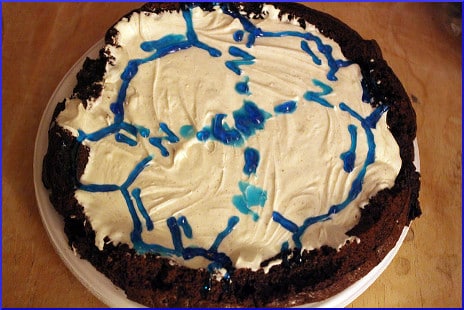
Childhood Obesity News has been looking back over the recent history of the United Kingdom. Last summer, the National Health Service announced that one in every 34 urgent care admissions was due to overweight or obesity. This includes people coming to the emergency room for chest pains, heart attacks, arthritis, and sleep problems, and adds up to an estimated £30 billion ( $36 billion) per year, spread out over 530,000 medical cases. Then, just to put the icing on the cake, the report added that the number had doubled in only four years.
Obviously, for such exponential growth to continue would be catastrophic. Already, fat-related ailments use up to one-third of the NHS budget. The Sun quoted plain-spoken Tam Fry, of the National Obesity Forum (who also chairs the Child Growth Foundation) said:
This is proof fat people are clogging up the NHS and ruining its finances. Treating obese patients comes with a heavy price tag the Health Service can no longer afford.
Last summer, at the urging of the National Obesity Forum (Tam Fry again), Britain’s huge retail chain Marks & Spencer eliminated candy from shelves adjacent to the checkout line, which can help customers by removing the “impulse buy” temptation, and especially help parents by removing the “pester power” factor — the opportunity for kids to plead and whine while their parents wait to pay for their groceries.
Admirable as the gesture sounds, several other corporate retail outlets had already seized the initiative and made that sacrifice more than a year earlier. A chain called Morrisons took a step in the correct direction by removing candy from one-fifth of its checkout lines, so the customer would at least have a choice of which type to queue up in.
In the same month, journalist Lizzie Parry wrote:
Around one in seven Scottish children aged between two and 15 are classed as obese. Last year more than 3,500 primary one pupils were found to be clinically or severely obese when they started school — up almost 400 on the previous year.
As always, Tam Fry was asked for a comment, and said he found the numbers shameful but unsurprising.
In Scotland, the National Health Service’s Lothian district encompasses the city of Edinburgh and the surrounding area, which includes more than a hundred General Practice medical offices and 21 hospitals. Over the three years before the news story was written, Lothian’s pediatric weight management program had received referrals for services needed by more than 700 children.
Many specialists have given up on the idea that childhood obesity can be impacted by making schools offer more exercise and healthful dietary options. The “individual responsibility” answer is favored by the corporations that manufacture the food, so, for that reason, it needs to be taken with a grain of salt. While it’s fine for adults, children often have very little scope in their lives for choices about what’s on the menu or how much active outdoor time they get.
Personal responsibility is a valid answer, but seems not to be the only answer. Edinburgh University Professor Raj Bhopal said:
Most people working in public health would agree that the answer lies in changing the wider environment. Looking at what food we grow in this country, what food we tax, what food people are choosing to buy in supermarkets, where that food is placed in the supermarket.
As so often happens, it seems to be a matter of “necessary” and “sufficient” conditions. The environment needs to be good, and the personal habits need to be good, so both are necessary to get the job done, but neither is sufficient to do it alone.
Your responses and feedback are welcome!
Source: “Hospital fat toll is double 4 years ago,” TheSun.co.uk, 07/20/15
Source: “Marks and Spencer are scrapping sweets at tills to help shoppers make healthier choices,” Mirror.co.uk, 07/17/15
Source: “Children as young as TWO sent to NHS ‘fat camps’ to tackle obesity crisis,” DailyMail.co.uk, 08/03/15
Photo credit: Quinn Dombrowski via Visualhunt/CC BY-SA

 FAQs and Media Requests:
FAQs and Media Requests: 











